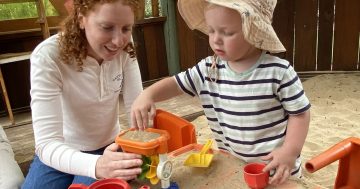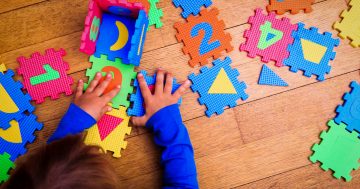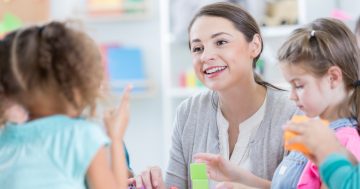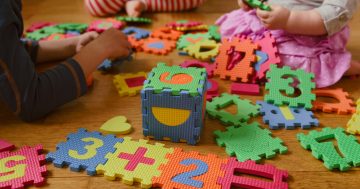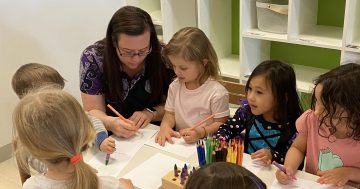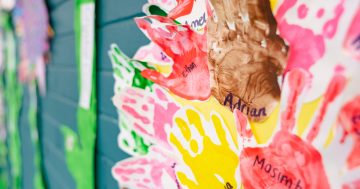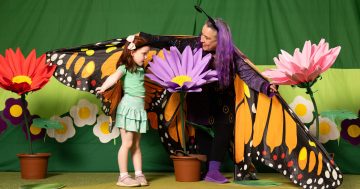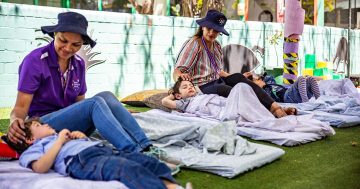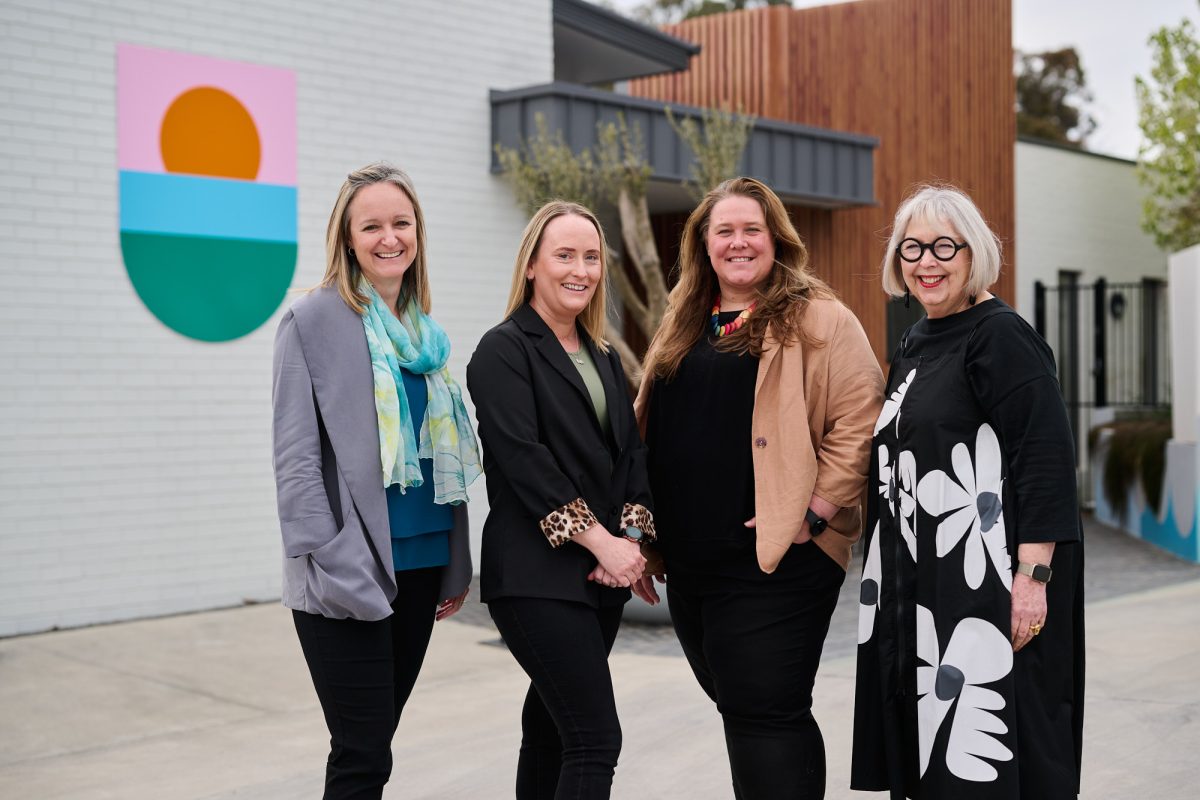
Harbour EL Aranda is directed by three of Canberra’s most experienced and respected early childhood teachers and educators: Lee Yelland, Karrinn Downes and Jade Smith, pictured here with Harbour EL’s Executive Director of Education Wendy Shepherd. Photo: Harbour Early Learning.
The group of prominent thought leaders behind a revolutionary early learning centre that has seen roaring success in Sydney is rolling out their unique operating model in Canberra.
Harbour Early Learning (EL) opened one centre in Aranda earlier this year and is currently fielding enquiries about its Red Hill centre, which is earmarked to open in February next year.
“We’ve been inundated with enquiries at Aranda and Red Hill and places are filling fast,” Harbour EL Aranda’s Director of People and Policy Lee Yelland says.
“I’m really pleased Harbour EL chose Canberra as its next location because we really needed this here.”
Harbour EL works with universities and early learning professionals to develop its pioneering pedagogy and operating philosophy and set a new benchmark for quality education and care for children from birth to six years.
At the helm is Executive Director of Education Wendy Shepherd, a founding member of the groundbreaking Mia Mia Child and Family Study Centre in the Department of Educational Studies at Macquarie University, who draws on research-based approaches to help educators and parents give children the best start.
“It’s a really exciting time for the early childhood education sector in Australia. There’s a lot of interest and a growing appreciation and understanding of those crucial first five years,” Lee says.
One big point of difference is Harbour EL’s distributed leadership model, which includes three directors (one each for people and policy, community and compliance, and pedagogy and practice) instead of the traditional centre director. This fosters a collaborative approach while leaning into individual strengths.
In addition, every classroom is led by a degree-qualified early childhood educator, including infant rooms.
“Most centres only have one or two, and generally only in the preschool setting,” Lee says.
“There’s a growing understanding of how critical those first 1000 days are, and that having highly qualified staff and a better than regulatory staff-to-child ratio, alongside collaborative leadership, leads to better outcomes for children.”
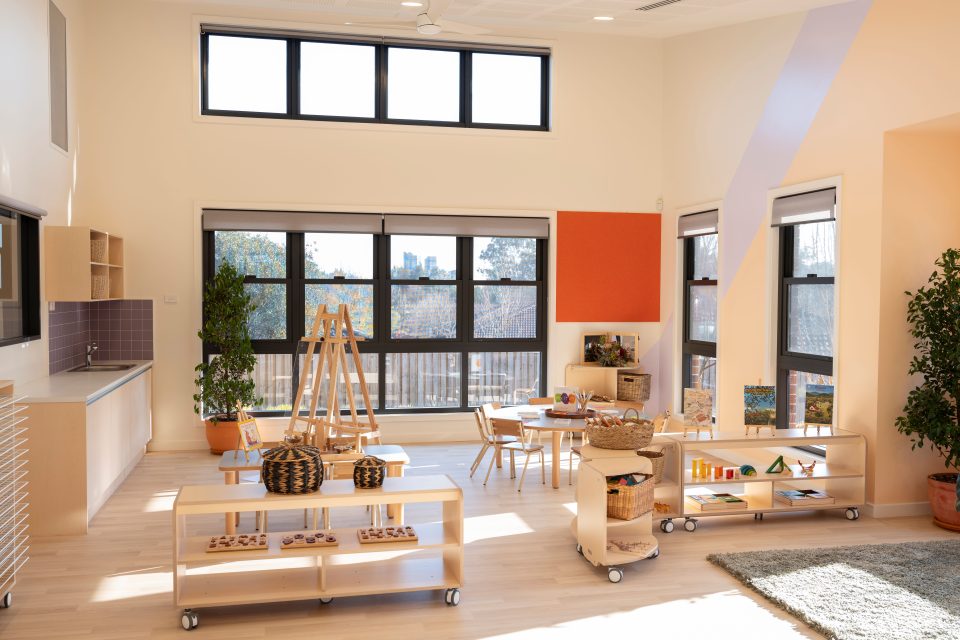
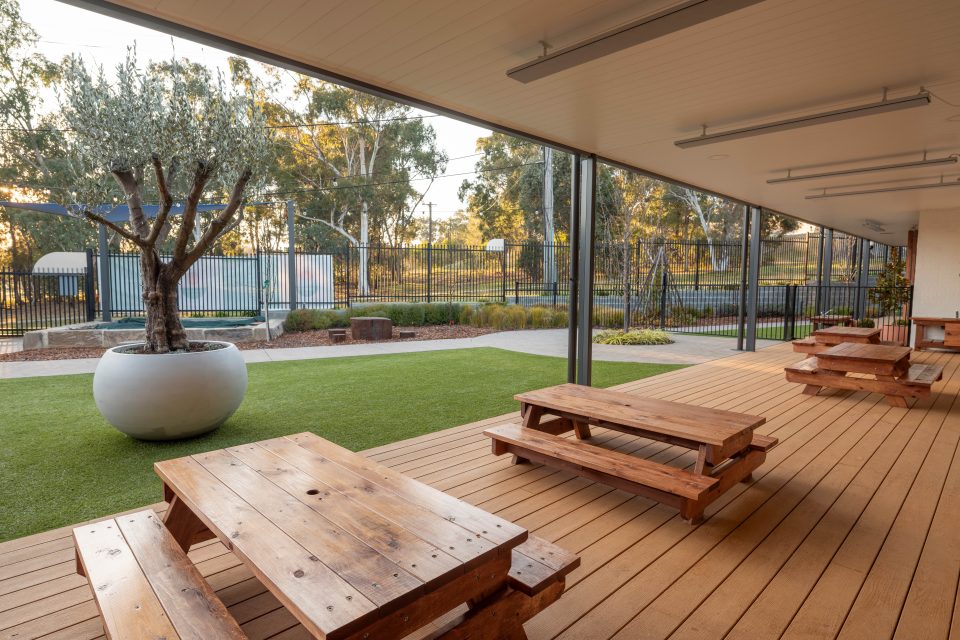
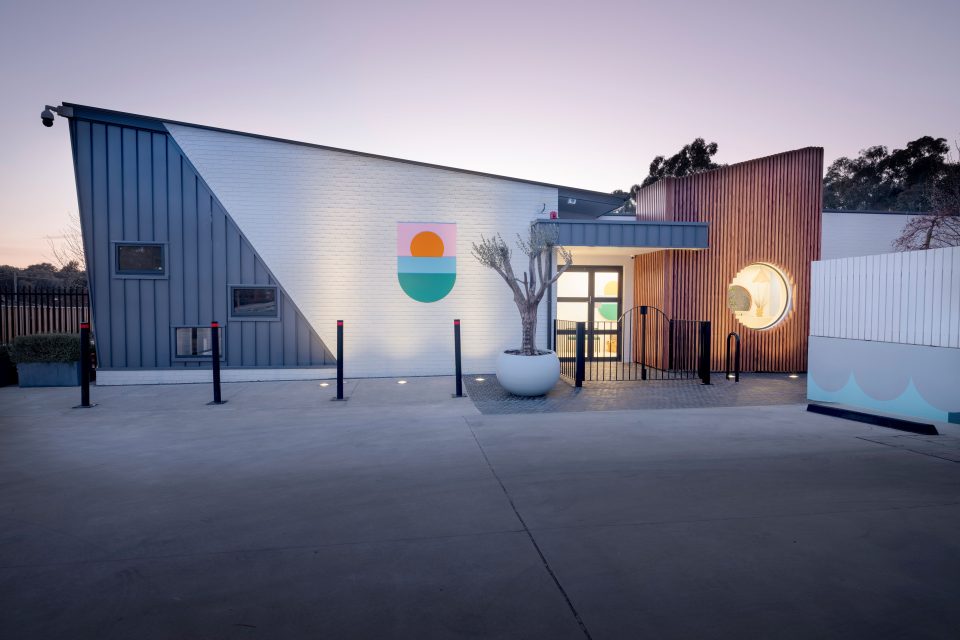
The teaching philosophy is deeply rooted in findings from the UN Convention on the Rights of the Child – namely, teaching children from day one that they have a voice.
“Agency, and the ability to direct their own learning, is important. It links back to the understanding that children, if interested in something, will engage with it and use it as a vehicle for learning,” Lee says.
“As a result, educators, too, learn alongside the children and scaffold that learning rather than direct it. That shared, sustained interest in learning together lasts longer and goes deeper.”
Harbour EL’s philosophy also incorporates concepts from the Reggio Emilia Approach to early childhood, which views the environment, along with parents and educators, as a child’s “third teacher”.
This means the physical space in which a child works should be designed to encourage exploration, experimentation and creation, promote collaboration, support interests, include purposeful materials that promote creativity, thinking and problem-solving and integrate the outdoors.
It’s why Harbour EL spaces are curated by leading architectural, interior and play space designers, with purpose-built, playful spaces of the highest standard to enhance learning outcomes.
“From the building and interiors to the set up of resources, the spaces are designed to inspire the children and spark their curiosity and wonder,” Lee says. “It’s around conveying respect to the children, that they are deserving of beautiful spaces to play, learn and grow.”
As part of Harbour’s commitment to contemporary pedagogy, the centre is also actively engaged with the University of Canberra (UC) to discuss research programs that will encourage professional development and engage staff in the latest research and best practice for children.
“Being active in the University of Canberra study space and the Early Learning Centre bridges the gap between theory and practice within Harbour EL,” Lee says.
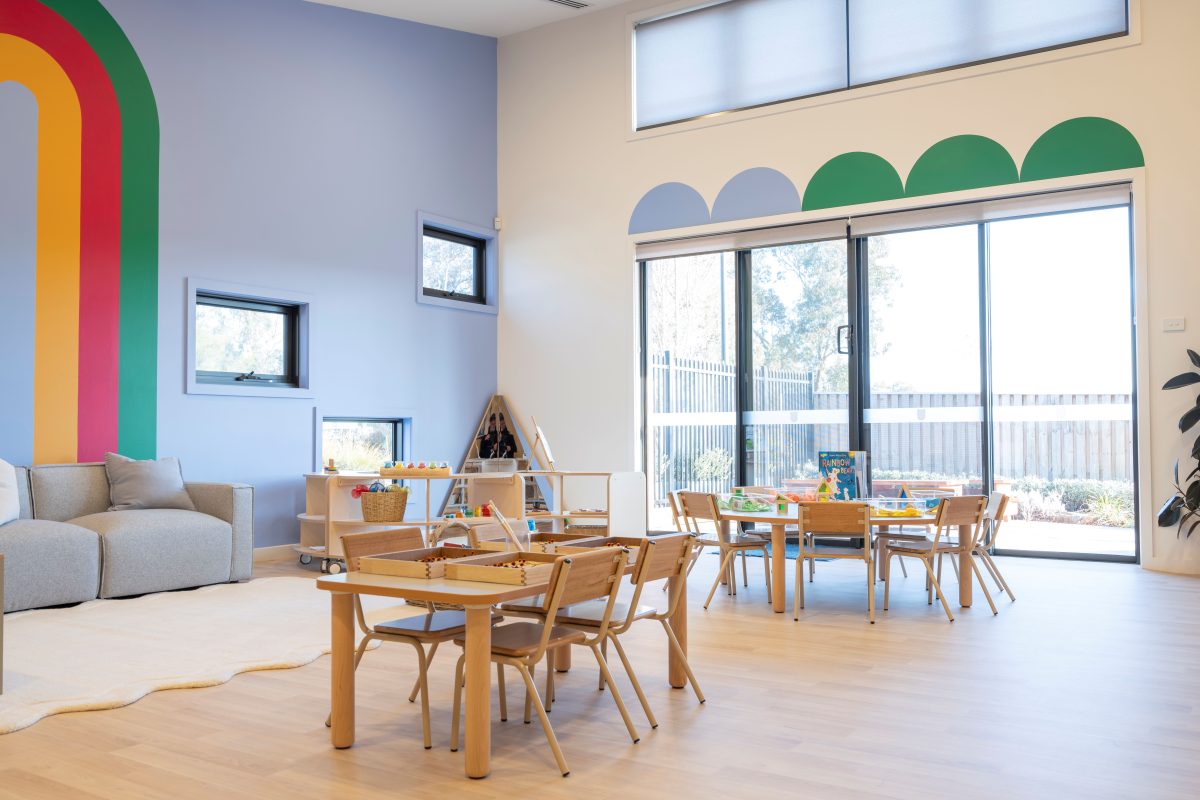
Harbour EL centres lean into the Reggio Emilia Approach to early childhood in which the physical environment is a child’s “third teacher”, and therefore, the centres are all aesthetically beautiful and functional, with resources laid out with intention. Photo: Harbour EL.
At the independently and family-owned and operated Harbour EL, family is also a core focus of the practice, and building relationships with families is a vital inclusion in all programs.
Co-owners Ben Hewlett, who was born in Woden and grew up in Yass, and James Reynolds have children at Harbour EL centres.
“With young families of our own, we understand the desire for trusted and premium early education for children, and our centres are developed with exactly this in mind,” Ben says.
For more information, visit Harbour Early Learning or to book a centre tour at Aranda or Red Hill. Email aranda@harbourearlylearning.com.au or call the Director of Compliance and Communication, Karrinn Downes, on 6241 9538.











